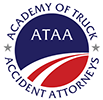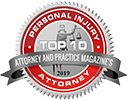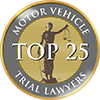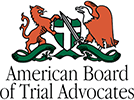Crosswalk Accident Lawyer
In 2015, 30 pedestrians in Austin were struck and killed by motor vehicles. Investigators determined 26 of those killed were either in an area where pedestrians shouldn’t be or were crossing the street without a “walk” signal.
Crossing the street at corners, obeying traffic signals, and using crosswalks can help protect pedestrians from accidents. Nevertheless, inattentive and aggressive drivers sometimes run down people who have the legal right of way, when they either fail to notice a crosswalk or speed through it.
Crash Risks
Law-abiding citizens know that when driving, they should yield to pedestrians in crosswalks. But people who already engage in dangerous behavior behind the wheel – texting, speeding, or driving while intoxicated – are less likely to notice people crossing the street and less likely to yield the right of way.
In March 2016, a man in a wheelchair was using a crosswalk near Beltline Village shopping center in Dallas when a car entered the crosswalk and struck him, crushing his wheelchair. The victim was rushed to the hospital and was treated for his injuries. Police determined the driver was intoxicated at the time of the crash and had a previous DWI arrest in 2012.
In 2009, a young man was crossing a dark street in Santa Rosa, CA. He was using the crosswalk, but nearby streetlights weren’t working, and a Ford F-150 truck struck and killed him. His family later sued the city of Santa Rosa, claiming its deactivation of streetlights in order to save money contributed to the crash. The city subsequently filed suit against its electricity provider, PG&E, and PG&E reached a settlement with the family, paying them $335,000.
It’s not common for citizens to prevail in a personal injury suit against a city or town. But if the injured party’s attorney can prove a local governmental entity knew about a defect but did not attempt to correct it, the court might rule in favor of the plaintiff. In the Santa Rosa case, residents in the area said the streetlight near the crosswalk hadn’t functioned for at least a year, and the city claimed it had no legal duty to maintain lights – a claim with which the court did not agree.
Parking Lot Dangers
Around malls and large retail stores, crosswalks are supposed to provide safe passage for pedestrians between the building’s entrance and the parking lot. But drivers routinely roll through crosswalks without yielding for pedestrians, and that puts pedestrians in danger.
Another incident in California, about 20 miles northeast of Sacramento, seriously injured an 85-year-old woman – she was crossing a crosswalk in front of a Walmart store, and a car struck her and pinned her beneath. A group of Walmart employees lifted the car off the woman, and she later recovered from injuries that included a collapsed lung, broken rib, and broken clavicle.
Yielding to pedestrians in a crosswalk is not optional – it’s the law. So when a driver breaks that law and hits a pedestrian, the court is highly likely to side with the injured party. If a crosswalk crash injured you or someone in your family, you may have a basis for a personal injury case against the driver. Call the EVANS / DESHAZO / REILLEY Law Firm today for your no-obligation consultation at 1-855-414-1012.
Holding Drivers Accountable
In 2012, Austin police began cracking down on drivers who ignore crosswalks. They stationed officers near crosswalks and issued citations to drivers who blocked crosswalks or failed to yield to pedestrians. Despite enforcement efforts like this one, pedestrian fatalities continue to be a problem in Austin.
Unfortunately, many drivers are more concerned with their own needs than the safety of others. They speed down residential streets, through parking lots, and across crosswalks, creating danger for pedestrians – and some drivers pay more attention to their smartphones than the road in front of them.
If a reckless driver struck you in a crosswalk, the EVANS / DESHAZO / REILLEY Law Firm may be able to help you. Pursuing a personal injury claim against a negligent driver can help injury victims with their financial needs, as well as hold drivers accountable for their behavior. Contact our office today by filling out our online form or by calling us at 1-855-414-1012.

 Serving Clients Throughout Texas
Serving Clients Throughout Texas

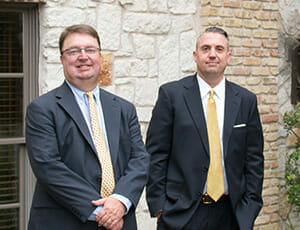
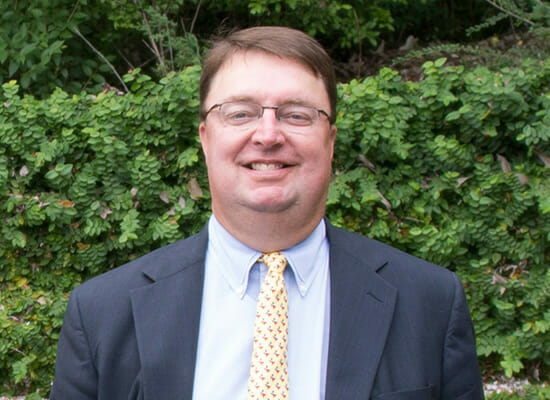 Chip Evans is a partner at Evans & Herlihy. Chip brings to the firm more than 20 years of experience as a trial lawyer representing Plaintiffs. It is the desire to help individuals, not corporations, that attracts Chip to this side of the docket. [
Chip Evans is a partner at Evans & Herlihy. Chip brings to the firm more than 20 years of experience as a trial lawyer representing Plaintiffs. It is the desire to help individuals, not corporations, that attracts Chip to this side of the docket. [ 


